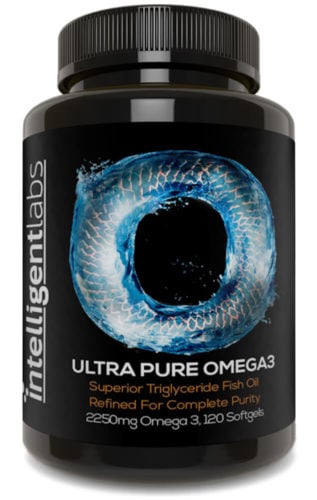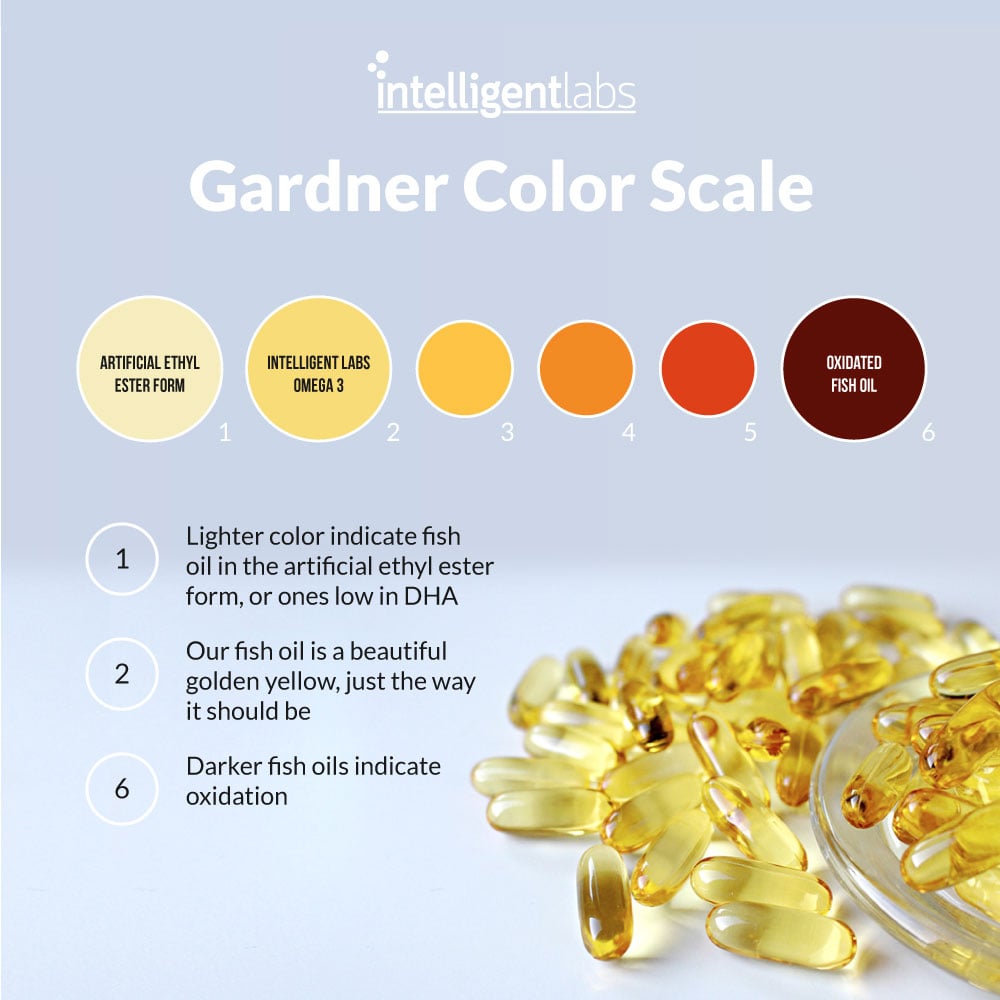Omega-3 is a huge help for those in serious training, or anyone looking to get fitter and stronger. If you’re serious about getting in shape, read this blog post! Today, we’ll take a look at all the benefits of taking Omega-3 fish oil for working out.
Table of Contents
How does Omega-3 fish oil help with exercise?
Taking Omega-3 for sports performance and recovery is a great idea! Let’s start with the first benefit of taking fish oil for working out.
Benefit #1: Omega-3 fish oil may help reduce cortisol levels
Exercise can make you feel amazing. But there is one drawback that can leave you feeling burnt out instead of more alive – the effects of cortisol. Cortisol is a stress hormone that is released in response to mental or physical stress.

A strenuous workout can trigger a cortisol release. Cortisol counteracts the benefits of exercising by hindering muscle growth.
The good news is that Omega-3 fish oil supplementation can reduce cortisol levels after working out!
In one study, a group of volunteers who took Omega-3 for 6 weeks had lower cortisol levels. They also reported reduced body fat as well as an increase in lean muscle mass (1).
Also, strenuous activity can create small tears in muscle fibers. But fortunately, one study found that Omega-3 helps stimulate muscle growth. It may therefore help boost healing and muscle growth, especially during the resting period (after exercise) (2).
Benefit #2: Omega-3 may help with DOMS post-workout
Omega-3 helps manage the unpleasant aftermath of sore and stiff muscles.
Delayed-onset muscle soreness (DOMS) commonly affects those just starting to get into an exercise routine. But it can also affect anyone who’s pushing themselves too hard during exercise. The soreness and reduced range of motion is often caused by inflammation that occurs when the muscles are damaged.
Omega-3 can lessen the severity of the inflammation and reduce the pain. It also increases blood flow to the damaged muscles, speeding up the recovery process.
A group of volunteers reported reduced pain and increased range of motion 1 to 2 days after working out. This is when the symptoms of DOMS are most strongly felt (3).
Additionally, in another study, participants who took 3,000mg of Omega-3 daily experienced a reduction of inflammation and pain (4).
Benefit #3: Omega-3 may increase muscle mass and strength
Several studies have shown growth of muscle protein after Omega-3 fish oil supplementation. Firstly in animals (5, 6, 7) and then in humans (8, 9, 10, 11, 12, 13).
Omega-3 fatty acids, specifically EPA and DHA, stimulate an anabolic response. Omega-3’s muscle-building or anabolic effects come from its ability to switch on the mTOR signaling pathway (11).
mTOR is the body’s protein sensing system and the master switch for skeletal muscle growth (14, 15). If we can turn on mTOR, we can grow more muscle and develop greater strength (16, 17).

Benefit #4: Omega-3 may prevent muscle breakdown
Our muscles are in a constant state of change. They’re continually being broken down and repaired. Plus, new muscle cells are continually synthesized as well. This process of ‘anabolism’ and ‘catabolism’ is generally balanced.
However, Omega-3 supplementation, and specifically the omega-3 fatty acid EPA, helps down-regulate the ubiquitin proteasome pathway, so there is less muscle wasting (18, 19, 20, 21).
The ubiquitin proteasome pathway governs the system for catabolism or the breaking down of proteins. It maintains homeostasis, by ensuring we have the right levels of proteins, in the right amounts, at the right time.
Another way Omega-3 may have anti-catabolic effects is through its effects on stress hormones. Elevated stress hormones such as cortisol, adrenaline, and noradrenaline can cause muscle breakdown. Fortunately, taking Omega-3 supplements may help reduce the activation of these stress hormones (22).
Related article: Omega-3: The Ultimate Supplement Guide
Benefit #5: It may help increase workout tolerance by improving blood flow
Maintaining energy and avoiding fatigue during a workout is a challenge for everyone. Fatigue gets us all in the end, even Olympic-level athletes. However, Omega-3 helps by increasing blood flow. And therefore, oxygen, to the working muscles.
There are different ways Omega-3 can boost performance:
*It improves blood flow by letting the arteries widen

The first way Omega-3 boosts performance is by improving blood flow through its action on artery walls. A 2007 study found that Omega-3 can cause the endothelium of the arteries to vasodilate (widen).
The endothelium lines the whole interior wall of blood vessels. It’s a very active organ that constantly adjusts to maintain homeostasis. But stress will often cause it to constrict. But taking Omega-3 helps the arterial endothelium to expand, leading to increased blood flow (23).
*Omega-3 is a powerful anti-inflammatory
The second way Omega-3 improves blood flow is through its anti-inflammatory properties. Both Omega-3 and Omega-6 produce hormones called eicosanoids. They can have both inflammatory and anti-inflammatory properties.
Unfortunately, many people’s diets lead to an imbalance in the Omega’s. When there’s too much Omega-6, more inflammatory eicosanoids are produced.
Taking Omega-3 helps even out the balance, leading to positive health changes. This includes reduced blood cell stickiness, blood vessel vasodilation, and improved circulation (24, 25, 26).
*It promotes red blood cell ‘deformability‘
Thirdly, another key factor limiting blood and oxygen flow to muscles is when erythrocytes become stiffer during exercise (27). Erythrocytes are the main type of red blood cell (RBC) in the body.
Unfortunately, stiff cells are unable to pass through the narrow capillary network. Because of this, the cells must remain flexible. This flexibility allows the cell to ‘deform’ itself to fit or squeeze through the capillaries. Here’s an image of a cell squeezing its way through a capillary:

From Hosseini SM, Feng JJ. A particle-based model for the transport of erythrocytes in capillaries, 2009 (28).
This red blood cell deformability is vital to our health. This lack of flexibility is associated with a large range of health problems, such as sickle cell anemia.
Studies show that Omega-3 improves the deformability of RBCs (29, 30). It may help reduce lipid oxidation and increase oxygen and nutrient delivery to the muscles. The outcome? Enhanced athletic performance!
Can Omega-3 help athletes?
Yes, Omega-3 may indeed help athletes!
A University of Toronto study found that athletes performed better after taking 1.1 grams of Omega-3 for 21 days (31). They showed improvements in neuromuscular function, anaerobic capacity, and muscular strength.
This is the first study to directly measure the effects of Omega-3 on athletic performance and muscular function. They studied 31 competitive athletes in sports that required strength and endurance. For example, rowing, sailing, triathlon, and running.
The study’s results were generally positive. But the researchers said 21 days probably isn’t long enough to see a marked increase in each athlete’s maximum force.
They’re not alone in their observation, though. One study also reported it may take up to 10-12 weeks for DHA to fully integrate into cell membranes (32).
Related article: Get To Know The Different Types of Omega-3 Fatty Acids
How much fish oil to take for working out?
To gain the main workout benefits from Omega-3, we suggest taking it for at least 10 weeks. For full performance improvements, a dose of 2 grams EPA/DHA or more per day is ideal.
Omega-3 is just as useful for exercise as any machine or set of weights. It may help you maintain a healthy exercise routine. But there are plenty of other ways it can help you, too. Read our article on the 24 ways Omega-3 can improve your life!





